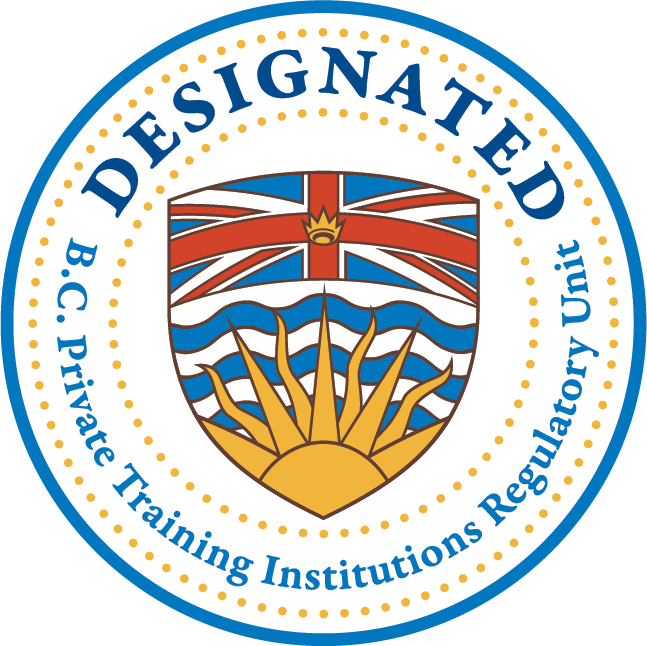 604-618-5678 604-618-5678 |
English as a Secondary Language (Approval Not Required)
English as a Secondary Language (Approval Not Required)
This program does not require approval by the Private Training Institutions Regulatory Unit(PTIRU) of the Ministry of Post- Secondary Education and Future Skills. As such, PTIRU did not review this program.
Students who enroll in a language program which is six months or less in duration or for which tuition is less than $4,000 may not make a claim against the Student Tuition Protection Fund, which is managed by the Private Training Institutions Regulatory Unit (PTIRU) of the Ministry of Post-Secondary Education and Future Skills. Further, this language program may not have been reviewed or approved by PTIRU.
The program includes the following courses:
IELTS Preparation
This course will teach students to develop key strategies need to successfully complete tasks found on the IELTS Test covering both examination skills and techniques while improving English speaking, listening, reading, writing, grammar, pronunciation, and vocabulary skills.
Program Duration:Two options, same duration, 15 weeks and 25 weeks
Learning Objectives:
● Utilize the skills and techniques needed to successfully perform well in the different sections of the IELTS Test
● Understand the format and content of IELTS
● Recognize their true level in speaking, reading, listening, and writing
● Recognize and overcome challenges presented in the IELTS
● Evaluate and self-correct their speaking
● Improve their English through language input and practice activities in listening, speaking, reading, and writing
● Reading: Skimming/scanning for general and specific information, processing information from academic and authentic sources (magazines, journals, internet sources), logical organization of information
● Writing: Understand how to plan, organize, and write personal correspondence, elicit and provide general factual information, and express opinions (views, complaints, etc.)
● Listening: Extracting information from texts of varying length. Identifying and learning what information to look for. Understanding how to summarize and condense information
● Speaking: Provide information in a formal/causal interview context; Give an extended talk on a given topic; Taking part in a formal discussion
● Grammar: Recognize and correct common grammar/spelling mistakes for writing and speaking.
● Vocabulary topics: Develop a comprehensive vocabulary connected with common IELTS topics related to the Environment, Science and Technology, Health, Education, Transport, The Arts, Media, and Urbanization.
● Obtain a better understanding and sensitivity towards other cultures
● Develop the study skills needed to continue to learn English after completing the course and for lifelong learning.
English in Use - A Comprehensive English Foundation Course
The purpose of the course is to prepare students to be ready to use English as a language to communicate efficiently with others in Canada.
Program Duration:80 hours in 20 weeks
Learning Objectives:
Upon completion of this course, students will have reliably demonstrated the ability to use English as a language in both their daily life and workplace in Canada. Students will have acquired skills to communicate basic ideas both in verbal and written forms.
Students will be able to:
l Listen and understand the meaning of ideas expressed in English covering daily topics;
l Speak in an understandable manner with clear pronunciation and appropriate intonation;
l Read English texts about a range of content such as government notices, letters and reports from employers;
l Write letters, notes and messages with comprehensible grammar and vocabulary to express their ideas.
Daily Work and Communication Skills
Duration: 104 hours in 26 weeks
Learning Objectives:
Communication skills are an essential part of caregivers’ work and life. This course teaches students valuable inclusive interpersonal skills and provides them with a critical understanding of the communication process to enhance their professional and personal relationships.This course examines the impact of interpersonal relationships as experienced in family, business, and social groups. Topics include personal well-being, self-disclosure, conflict and anger management, models of interpersonal relationships, and the social exchange theory.



